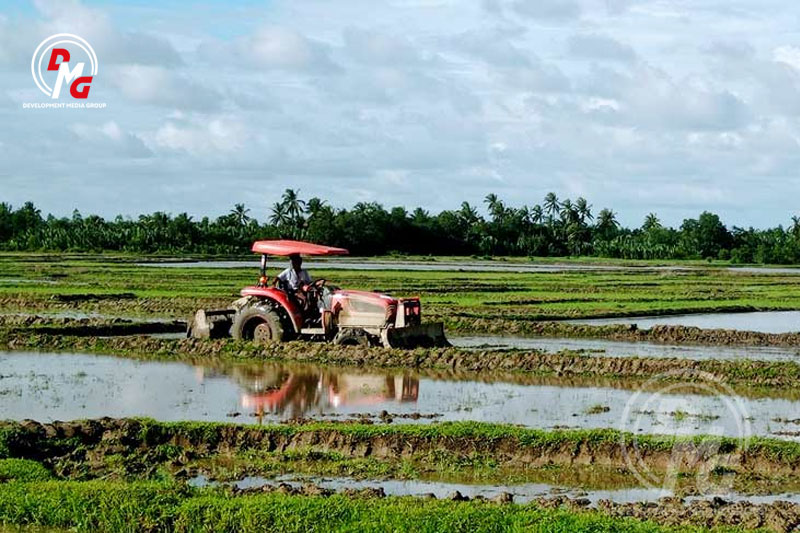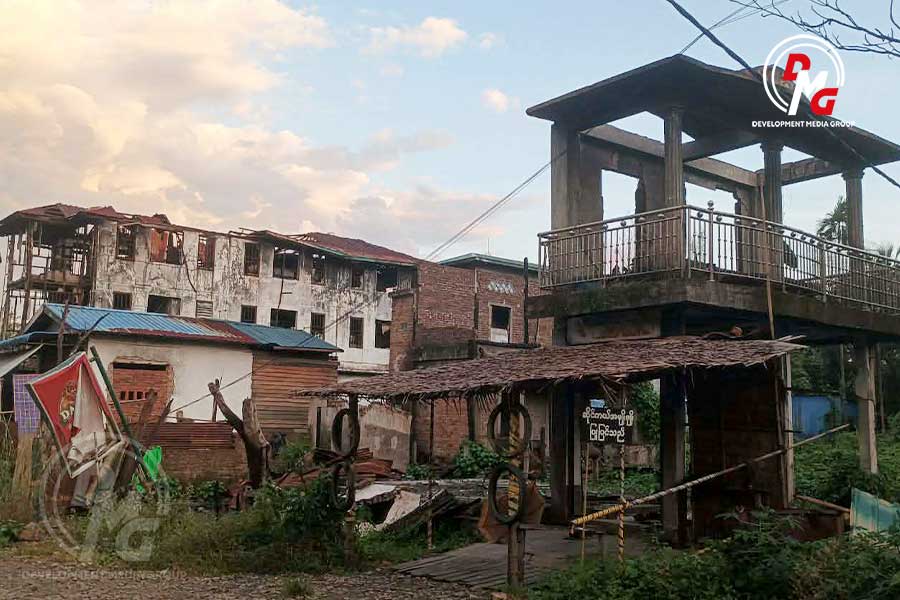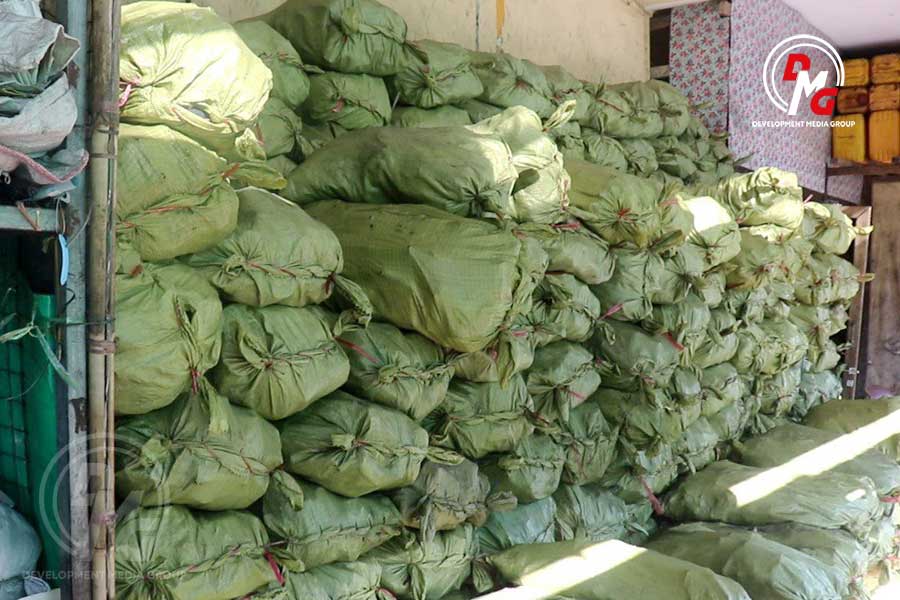- After Arakan fighting, Taungup residents struggle to rebuild homes
- Charcoal sales surge in northern Arakan after AA firewood ban
- General Khaing Razar in the Arakan Revolution
- Junta shows signs of resurgence as resistance forces face mounting challenges
- Fighting in Hpakant halts jade mining, residents face livelihood crisis
MRF to implement crop insurance system for farmers
The Myanmar Rice Federation (MRF) has said it will develop a crop insurance system as farmers in Myanmar face financial losses during the paddy harvesting season due to climate change and high agricultural costs.
25 Sep 2023

DMG Newsroom
25 September 2023, Sittwe
The Myanmar Rice Federation (MRF) has said it will develop a crop insurance system as farmers in Myanmar face financial losses during the paddy harvesting season due to climate change and high agricultural costs.
The crop insurance system will be implemented in Nay Pyi Taw, Yangon, Bago and Ayeyarwaddy Regions this year, said U Ye Min Aung, chairman of the MRF.
“Farmers have other expenses, so they can’t wait for a good paddy price to sell. Since the paddy is sold during harvest time, the farmers face the problem of not getting the price when the price is good. That is why this system is being implemented,” he said.
Farmers are facing the problem of not getting a good price as they have to sell the paddy as soon as it is harvested. Under the crop insurance system, farmers can deposit their paddy in designated warehouses and get a certificate of deposit and the necessary funds.
However, if the storage time is not limited, the price of paddy can be marketed and the stability of the paddy price will be affected, according to some market analysts.
“There is an insurance system that farmers can use. Now the price is good, but the farmers are not getting the price. If it cannot be done systematically and fairly, it may affect the stability of the price of paddy and there may be disadvantages for the consumers,” said U Nay La, a market analyst.
The MRF said that this is the first time in Myanmar that a system of guaranteeing movable assets has been implemented, and the law is being drafted regarding the banks that will lend money, and the appropriate time period for crop storage is also being drafted.
Farmers are struggling with climate change, high labour costs, rising fertiliser prices and runaway agricultural input costs, and have also suffered losses due to poor prices during paddy harvesting.
“Farmers can’t wait for debts to be paid, so they sell their crops at bargain prices. If the farmers have the right, they must make a storage certificate. But I don’t know the habits of this system, so I can’t say yet. Since this system will be implemented, it is necessary to discuss with the farmers,” said Ko Myint Zaw, a local farmer from Pantanaw Township in Ayeyarwady Region.
Sixty percent of the original price of paddy per 100 baskets of paddy, and 70 percent to 80 percent per 100 baskets of paddy for paddy to be stored as seeds will be provided through the crop insurance system, according to the MRF.
The Myanmar Agricultural Development Bank lends farmers K100,000 per acre of land annually, but the cost of cultivating one acre of land is over K300,000, leading farmers to rely on external loans.
“We can’t wait for good prices after the crops are harvested. We had to sell crops to pay off our debt. We welcome this system if it is an opportunity for us,” said U Hsan Nyunt, a local farmer in Thanatpin Township, Bago Region.
There are 15 million acres of monsoon paddy in Myanmar, of which about 2 million acres are summer paddy. According to the MRF, Myanmar produces a total of 13 million tonnes of paddy per year, of which 8 million tonnes are sufficient for domestic consumption, and 2.5 million tonnes of rice are exported abroad.
















.jpg)
